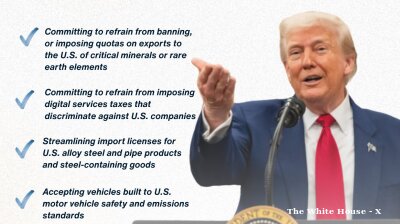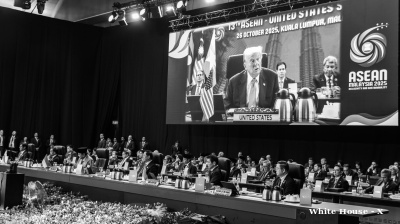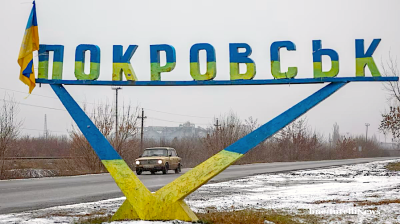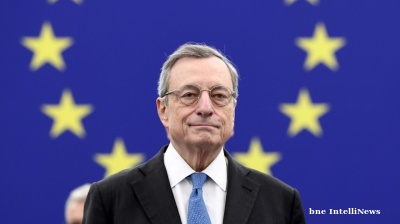In a public speech on April 27, Romanian President Klaus Iohannis said he was withdrawing his support from Prime Minister Viorica Dancila, and asked her to resign.
The president does not, under the Romanian Constitution, have the right to dismiss the prime minister, so Iohannis’ move appears to be aimed at putting pressure on Dancila and the ruling coalition amid a growing dispute over her government’s plans to move the Romanian embassy in Israel to Jerusalem.
"Prime Minister Dancila turned the government into a vulnerability for Romania. Therefore I publicly ask her resignation," Iohannis stated.
Relations between Iohannis and the ruling coalition, led by PSD leader Liviu Dragnea who is a close ally of Dancila, were already poor. The current crisis appears to have been sparked by a dispute over the plans to move the embassy, which were announced literally overnight as a fait accompli without any consultation with the presidency.
In his speech, Iohannis talked of Dancila's “risky foreign policy missions with no mandate”, referring to Dancila’s visit to Israel and her refusal to meet the presidency to discuss moving the embassy.
"A secret document was discussed last week in the government. This was a big mistake because in matters of foreign policy it the president that has to be referred to […],” Iohannis said.
Iohannis also criticised Dancila for refusing to cooperate with the presidency.
“In the Constitution, in all the decisions of the Constitutional Court and in practice, it is stated and it is widely known that a constitutional consultation between the prime minister and the president is needed. It is in the interest of Romania and not for the particular interest of the authorities to cooperate loyally. These things were not understood by PM Dancila,” Iohannis said.
Dancila is the third prime minister appointed by the ruling coalition since it won the parliamentary elections in December 2016. The first two were dismissed by the ruling coalition itself, after falling out with the leader of the ruling Social Democratic Party (PSD). Dancila took the office in January this year.
The withdrawal of presidential support will not result in Dancila’s removal from the prime minister position, especially since she still enjoys the backing of the ruling coalition.
Iohannis’ rhetoric could be a first step toward a more formal attempt to dismiss Dancila, but this would be complicated under existing legislation.
The term used by Iohannis, withdrawing of support, is not a legal specification covered by the Constitution. The president must indeed endorse the appointment of a prime minister designate (though even then, can reject only one candidate). When it comes to dismissing a prime minister, the ruling majority can withdraw its support, but even in this case lawmakers must file a no-confidence motion against the prime minister. Indeed, Article 107/2 of the Constitution specifically states that the president cannot dismiss the prime minister.
The sole procedure for dismissing the prime minister, allowed by the Constitution, is through a public referendum after consultations with the parliament. The ruling majority holds a robust majority in parliament, but this should not be an obstacle since lawmakers' endorsement is not needed prior to the referendum. However, a referendum seems a remote scenario.
News

US Treasury Secretary Bessent blasts “Russian propagandist” special envoy Dmitriev in Washington PR debacle
A trip to Washington by the Kremlin’s special business envoy Kirill Dmitriev days after the US imposed new oil sanctions turned into a debacle after US Treasury Secretary Scott Bessent blasted him as a “Russian propagandist.”

Trump pledges enduring support for Southeast Asia as new trade deals signed
During his visit to Southeast Asia, US President Donald Trump declared that Washington would remain a steadfast ally to the region, as he signed a series of trade agreements with four ASEAN member states.

US grants 0% tariffs to Malaysia alongside Cambodia and Thailand
US President Donald Trump has approved a 0% tariff scheme for selected goods from Malaysia, Cambodia, and Thailand, a move formalised during the ASEAN Summit in Kuala Lumpur.

Russia test fires its Burevestnik nuclear-powered cruise missile
Russia’s Burevestnik nuclear-powered cruise missile has no analogues in the world, Russian President Vladimir Putin said, as the Kremlin escalates the unfolding missile arms race with Ukraine another notch.




